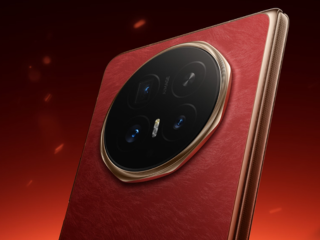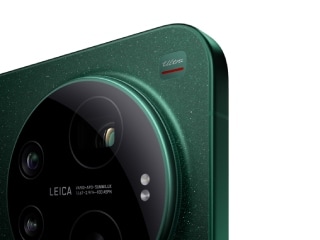- Home
- Tv
- Tv Reviews
- LG 48CX 48 inch Ultra HD HDR Smart OLED TV Review: Compact Size, Great Picture
LG 48CX 48-inch Ultra-HD HDR Smart OLED TV Review: Compact Size, Great Picture
Is this the best not-so-big television you can buy right now?

The LG 48CX has Dolby Vision IQ, HDR10, and Dolby Atmos support
Among the types of display panels commonly available for TVs, OLED sits at the top of the hierarchy, thanks to this technology's ability to reproduce excellent colours, contrast, and black levels. Naturally, this also means that OLED TVs are expensive, and so far they have only been commonly available in sizes of 55 inches or more. While a bigger screen definitely makes for a better viewing experience, 55 inches could often be too big for your viewing space, even if you have the budget for an OLED TV. LG's latest launch seeks to cater to that exact requirement.
At 48 inches on the diagonal, the LG 48CX is claimed by the company to be the smallest mainstream OLED TV available in India, and it is officially priced at Rs. 1,99,990. While this might seem a bit expensive given that 55-inch 4K HDR TVs are now routinely available for under Rs. 40,000, the LG 48CX promises flagship-tier picture and sound quality, and a smaller form factor that might appeal to many buyers. Is this the best not-so-big television you can buy in India? Find out in our review.
![]()
The Home Dashboard functions as the 'home' screen of the TV, but I didn't often need to use it
LG 48CX OLED TV design and specifications
OLED televisions are typically large and usually very heavy, so it's interesting to see an option that is considerably smaller than what I'm used to. With a 48-inch screen, the LG 48CX is among the smallest OLED TVs you can buy in India right now, but the size doesn't mean that the panel is short on specifications. This is an Ultra-HD HDR OLED display, with a resolution of 3840x2160 pixels and support for the Dolby Vision as well as HDR10 Pro formats for high dynamic range content.
The screen is surrounded by thin borders, and there's a very slim frame towards the top which widens a bit near the bottom of the TV. Interestingly, there isn't an LG logo anywhere on the front, which keeps even the bottom bezel slim and allows for a superior screen-to-body ratio. There is an indicator light at the bottom, and a multi-function button that controls power, source selection, and volume.
This minimalist, screen-focused design suits the size very well, especially given that this is a high-end TV and is considerably smaller than most others in its price segment. At nearly 15kg in weight, the LG 48CX is quite heavy for a TV of its size, and weighs a fair bit more than many budget 55-inch options.
Although officially priced at Rs. 1,99,990, this television should be available at a maximum operating price of around Rs. 1,35,000, as per information from LG. This definitely still puts it at the higher end of the price range for televisions under 50 inches in size, but you're getting the full suite in terms of specifications and features, going beyond just the OLED display panel.
These specifications includes Dolby Atmos audio support, 40W of sound output from a 2.2-channel speaker system, Apple AirPlay 2 and Nvidia G-Sync support, Bluetooth connectivity, and the webOS smart TV operating system. Other key features worth noting include LG's alpha-9 Gen 3 AI picture processor, auto low-latency mode (ALLM) with a claimed response time of around 1ms, and a standard refresh rate of 120Hz on all four HDMI ports.
![]()
The most useful ports on the LG 48CX face to the left, but many also face towards the back of the TV
There are plenty of connectivity options on the LG 48CX television, but the port placement is a bit strange, in my opinion. Three of the HDMI ports (all HDMI 2.1, one of which supports ARC) and one USB port face to the left of the screen, but the others all face backwards, which could lead to some wiring issues if you intend to wall-mount the TV. The backwards-facing ports and sockets include two additional USB ports, one additional HDMI port (HDMI 2.1), Component and AV inputs, Optical audio output (Toslink), 3.5mm audio output, Ethernet, and an antenna input.
The LG 48CX has an included one-piece centre-fitted stand for table mounting, which will let you place it on a small table if needed. The TV is compatible with VESA wall mounts (not included in the sales package), and I was able to use one of the standard mounts that I have to wall-mount the TV myself. I would, of course, recommend that you have any TV mounted professionally, and the technician will be able to advise you on whether there will be any additional costs for this at the time of installation.
LG 48CX OLED TV remote and features
Most affordable televisions are quite basic when it comes to features, but the LG 48CX OLED TV does live up to its premium positioning and offers a lot more than just basic smart TV functionality. There are a handful of gaming-focused features such as ALLM (Auto Low Latency Mode) and support for Nvidia G-Sync. There is also support for Apple AirPlay 2 for screen and audio sharing from compatible devices, and Apple HomeKit for IoT home automation. This will come in handy if you have an iPhone or Mac computer, and will let you use the TV as a big screen for these devices. You can also seriously consider using this TV as a monitor for PC gaming or productivity functions.
Usefully, both Google Assistant and Alexa are supported for voice commands from the TV, and either can be set up as the default option for the remote. Unlike Android TV-powered televisions, there's no built-in Chromecast functionality on the LG 48CX, but you can screen-mirror from an Android device through the LG ThinQ app.
The ‘magic' remote of the LG 48CX OLED TV has a familiar design, with a large, curved body, and lots of buttons. Like the remotes on most LG televisions available today, it lets you navigate by waving it around lightly while pointed at the TV. If you prefer something simpler, you can stick to the normal d-pad navigation and scroll wheel, which doubles up as the main selection button.
There are buttons on the remote to reach practically anywhere in the UI within one or two clicks, including settings, the home menu, hotkeys for Netflix and Amazon Prime Video, and simple controls to select the source, adjust the volume, and more. It's a well-equipped remote, but did feel a bit clunky and heavy. I particularly liked using the wand-style navigation, but it was nice to have the classic d-pad and scroll wheel to quickly move around in some cases.
![]()
The remote has hotkeys for Netflix and Amazon Prime Video, and a scroll wheel which doubles up as the selection button
LG 48CX OLED TV software and interface
The software and UI of a smart TV can make or break the usage experience, and some brands choose to develop their own software to have tighter control over how it works with the hardware. LG acquired webOS from HP back in 2013 and turned it into a smart TV operating system, which has become very capable over the years. The simplicity and ease of getting to apps and streaming services, the lack of clutter due to not having a traditional home screen, and the fact that everything you need is available, makes this among the better smart TV platforms today.
It would be inaccurate to say there's no home screen at all; there is a basic dashboard that lets you quickly switch between sources and sound devices, and activate AirPlay or Bluetooth sound share to use the TV as a Bluetooth speaker. I didn't often need to use the dashboard, as pressing the ‘Home' button on the remote pulls up the app drawer as an overlay even while content is playing on screen.
It's possible to switch between apps using the Home button, which brings up the full list of installed apps, the search bar, app store, quick-access tools such as the art gallery for screen savers, and the file manager for connected devices such as USB drives. For changing to a different source or accessing detailed settings, there are dedicated buttons on the remote, and everything pops up as an overlay rather than interrupting any active content to bring up a full-screen interface.
All the streaming service apps are built for smart TV use, and work well regardless of whether you use the floating cursor or the d-pad to navigate. The apps are quite similar to what you'd see on Android TV or Fire TV OS, and support the highest resolution and HDR formats possible where available. There are no major omissions with all key services having apps for webOS, and all of these apps work well on the TV.
Voice assistant support for Google Assistant and Alexa are present, as well as LG's own ThinQ AI system which can be used for very specific voice commands for TV functions.
LG 48CX OLED TV performance
The LG 48CX is unique for one big reason: it's the smallest OLED TV you can buy today (that we know of), and offers you a full suite of features and specifications despite the size. The ideal size of TV for my living room based on viewing distance is 50 inches, and although I routinely review televisions larger than that, I'm most comfortable watching a somewhat compact TV. The 48-inch screen suited my viewing space very well, and it was nice to have a truly flagship viewing experience at this size.
OLED TVs do command a price premium, and all of their benefits are visible on the LG 48CX. There is a considerable improvement in black levels and contrast over even good quantum-dot televisions, and the panel size makes for a sharp, tight image that makes optimum use of the pixels available. This also meant that the TV was impressive across resolutions; Ultra-HD Dolby Vision content naturally looked the best, but even HD and standard definition content looked good on the LG 48CX.
![]()
Black levels on the LG 48CX are excellent, as would be expected from an OLED TV
As always, I started with the best content available on streaming platforms right now – Ultra-HD Dolby Vision content from Netflix. The LG 48CX captured the dark and sombre setting of season two of Snowpiercer well, particularly when it came to excellent black levels that can only be achieved with a good OLED TV. The dark, daylight-deprived insides of the 1000-cars-long train were detailed and accurate when it came to colours, striking the right balance between dark and bright where needed.
Other colours, including the faint hints of daylight, skin tones, and even the occasional lights and sounds of the cabaret-like Night Car were beautiful, with the LG 48CX putting its infinite contrast ratio to excellent use and reproducing them accurately. Like the well-received 55-inch and 65-inch variants in LG's CX range, the 48-inch variant gets the flagship viewing experience on point when it comes to colours, contrast, and black levels.
Even with HDR10 and standard dynamic range Ultra-HD content, the LG 48CX largely gets the picture right, particularly because of how sharp it is. The smaller screen definitely contributes to making the picture seem a bit sharper over regular viewing distances. That said, peak brightness for HDR content did seem a bit low, and the bright outdoor scenes of The Grand Tour often fell a bit short of being truly exceptional. While HDR10 content did look good in general, Dolby Vision does tend to bring the best out in the LG 48CX.
This TV wasn't quite as searingly bright as a good LED or QLED TV such as the Sony X9000H can get with Dolby Vision or HDR10 content, and therefore needs a dimly-lit or dark room for the best viewing experience. Brightness is similarly a bit low even with standard dynamic range content, but the levels tended to show more prominently with HDR viewing.
![]()
While naturally at its best with Ultra-HD HDR content, the LG 48CX is also very good with full-HD and HD viewing
Upscaling on the LG 48CX was impressive; I found the picture sharp even at full-HD, while 720p and standard definition content was about as good as can be expected from a television of this screen size. The TV managed to soften the typical roughness that comes with playing lower-resolution content on an Ultra-HD TV, with no noticeable artefacts or pixelation. Even motion was smooth and natural across resolutions, offering cinematic motion blur or smooth flowing motion when necessary.
The smooth motion was visible and particularly useful with sitcoms, including New Girl and Brooklyn Nine-Nine played in full-HD. The cinematic blur was evident when I re-watched a few scenes of The Midnight Sky on Netflix, as well as with visually magnificent TV shows such as Our Planet. Even children's videos on YouTube looked clean and easy on the eyes on the LG 48CX, helped along by the fact that this isn't as large a TV as most high-end options.
The LG 48CX can get quite loud, and sounded clean even at moderate to high volumes. There's 40W of rated sound output, but this is a 2.2-channel speaker system with 20W dedicated to the subwoofers. This made for good sound performance in action scenes, reasonable performance with background scores, and decent output with speech and other voice-based sound. It did get boomy at times, but I quite enjoyed the aggression in the sound with certain kinds of content.
Verdict
55-inch and larger OLED TVs are much more common and affordable today than they were even a couple of years ago, and LG itself has been offering the 55CX at very competitive prices, especially during sales. However, buyers who want the benefits of the flagship technology but don't necessarily have the space for a 55-inch TV have been facing a dilemma, and LG has finally solved it with the 48CX. It's small enough to fit in a compact room, can be used as a TV or monitor because of its size, and offers a flagship experience that not too many TVs smaller than 50 inches in size even come close to.
This unique size is the television's biggest selling point, in my opinion, closely followed by the capable flagship experience it offers. The maximum operating price isn't completely unfathomable for the OLED space, and will likely fall over time just like its larger sibling, the 55CX. Buy this television if you want a flagship TV that isn't quite as large as most common flagship TVs. However, if you aren't particularly picky about the size and have the space for a 55-inch TV, the LG 55CX is available at roughly the same price and therefore potentially offers better value for your money.
Why did LG give up on its smartphone business? We discussed this on Orbital, the Gadgets 360 podcast. Later (starting at 22:00), we talk about the new co-op RPG shooter Outriders. Orbital is available on Apple Podcasts, Google Podcasts, Spotify, and wherever you get your podcasts.
Get your daily dose of tech news, reviews, and insights, in under 80 characters on Gadgets 360 Turbo. Connect with fellow tech lovers on our Forum. Follow us on X, Facebook, WhatsApp, Threads and Google News for instant updates. Catch all the action on our YouTube channel.
Related Stories
- Samsung Galaxy Unpacked 2026
- iPhone 17 Pro Max
- ChatGPT
- iOS 26
- Laptop Under 50000
- Smartwatch Under 10000
- Apple Vision Pro
- Oneplus 12
- OnePlus Nord CE 3 Lite 5G
- iPhone 13
- Xiaomi 14 Pro
- Oppo Find N3
- Tecno Spark Go (2023)
- Realme V30
- Best Phones Under 25000
- Samsung Galaxy S24 Series
- Cryptocurrency
- iQoo 12
- Samsung Galaxy S24 Ultra
- Giottus
- Samsung Galaxy Z Flip 5
- Apple 'Scary Fast'
- Housefull 5
- GoPro Hero 12 Black Review
- Invincible Season 2
- JioGlass
- HD Ready TV
- Latest Mobile Phones
- Compare Phones
- iQOO 15R
- Realme P4 Lite
- Vivo V70
- Vivo V70 Elite
- Google Pixel 10a
- Tecno Camon 50
- Tecno Camon 50 Pro
- Lava Bold N2
- LG Gram 14 (2026)
- Asus Vivobook 16 (M1605NAQ)
- Infinix Xpad 30E
- Brave Ark 2-in-1
- AI+ Wearbuds
- AI+ NovaWatch Kids 4G
- Xiaomi QLED TV X Pro 75
- Haier H5E Series
- Asus ROG Ally
- Nintendo Switch Lite
- Haier 1.6 Ton 5 Star Inverter Split AC (HSU19G-MZAID5BN-INV)
- Haier 1.6 Ton 5 Star Inverter Split AC (HSU19G-MZAIM5BN-INV)


















